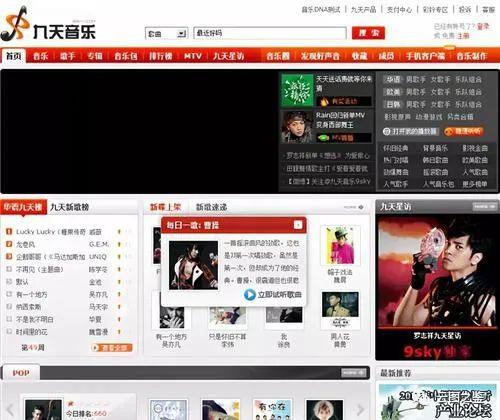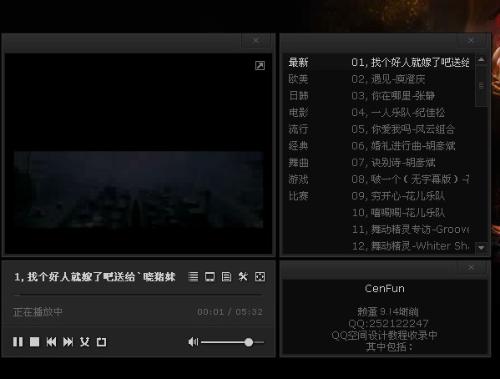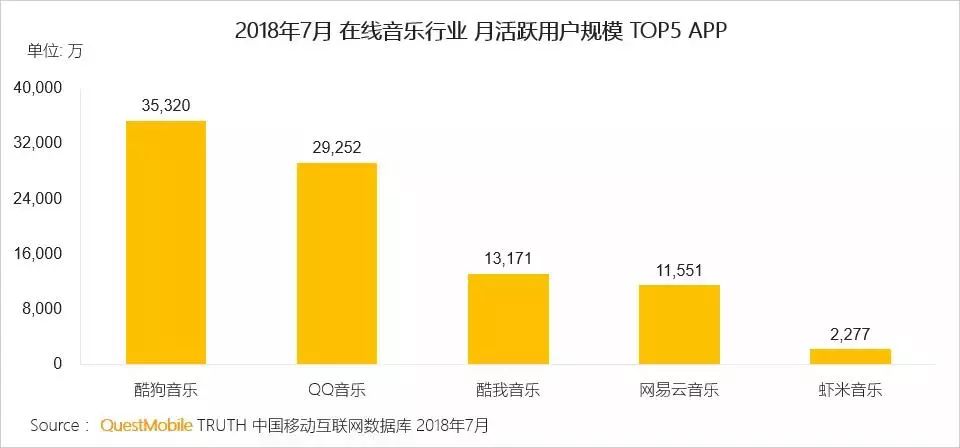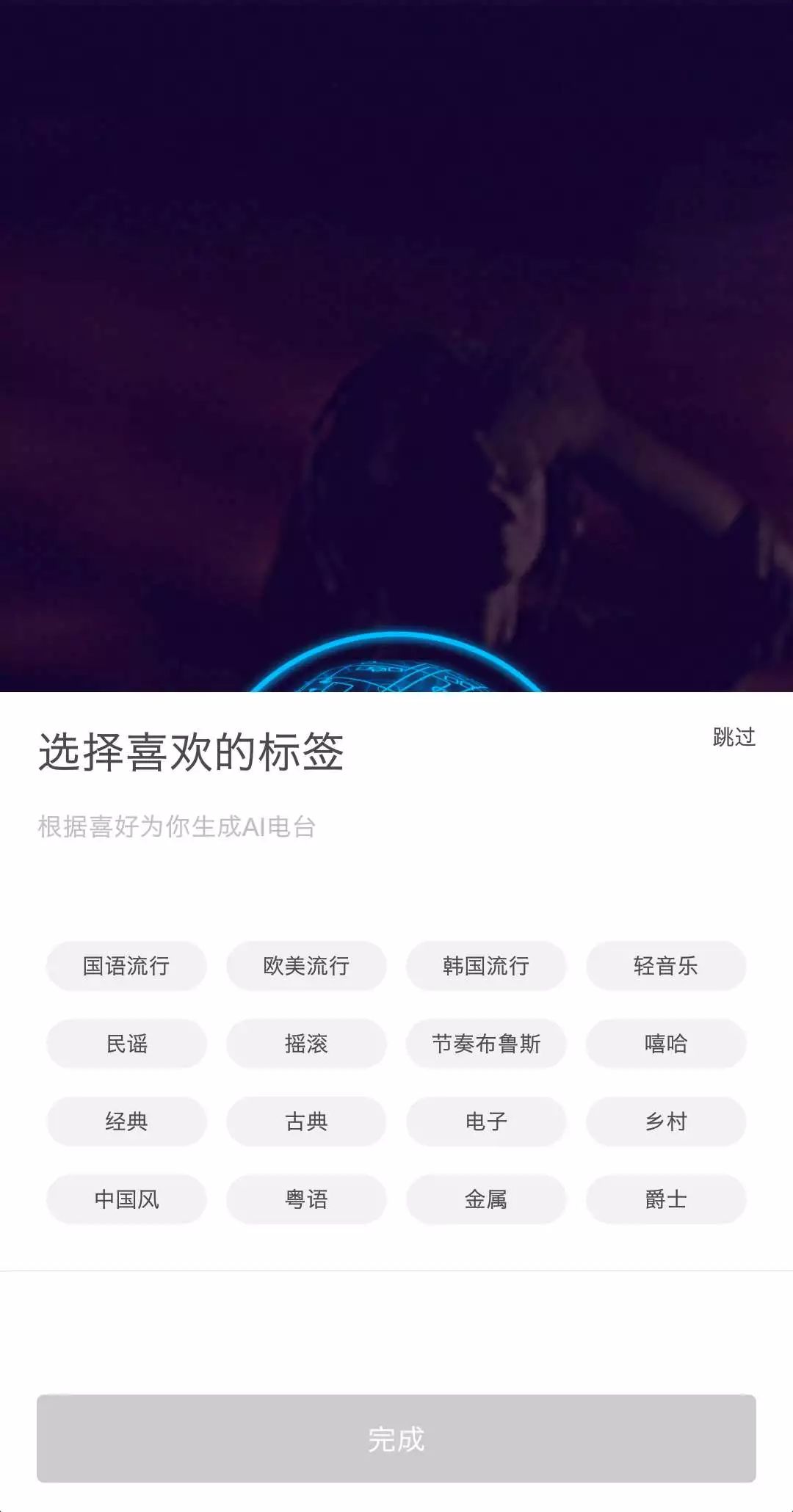Online music “protracted war”: from fiery passion to unbreakable strength
![]() 10/10 2024
10/10 2024
![]() 459
459
novice
In 1999, Cao Ming, who was still studying at Zhejiang University, jointly developed 9sky.com with his classmates who played in a band together. “At that time, we just put some pirated resources on it, but didn’t expect to accumulate some users,” he said. Such a website with strong personal elements and violating copyright rules became the first domestic online music website.

9sky.com
Subsequently, from 2000 to 2003, music websites offering online listening and downloading services emerged one after another, including Wangwa Music, the first domestic music website to promote paid downloads of legitimate music, and Sogua.com, founded by Xie Zhenyu, CEO of Kugou, through his own efforts.
During this period, many music websites began to learn from foreign countries and implement paid downloads of legitimate music. However, at that time, Internet users had not yet developed the mindset of “paying for legitimate content”, so the idea of getting people to pay for a few minutes of music was too naive.
In 2000, Wangwa Music went online and directly implemented paid downloads of music. Its founder, Feng Chujun, claimed to “take it upon himself to safeguard the market for paid downloads of legitimate online music”. However, a survey at the time asking “How much are you willing to pay per month to enjoy legitimate digital music?” revealed that 52.77% of respondents chose “not interested”.
9sky.com also began implementing paid downloads of legitimate music in 2003, with an average monthly payment of 30 yuan. However, after launching the paid function, the user churn rate soared to 90%.
For Internet users who refused to pay for copyright, Baidu may have been a better choice.
In 2003, Baidu MP3 search was launched, allowing users to search for their favorite songs and singers using Baidu. Leveraging Baidu’s powerful aggregation capabilities on the PC side, Baidu MP3 search became the largest music listening entry point in the PC era. According to data at the time, Baidu had a daily traffic volume of 60 million visits, with music searches ranking second at 12 million visits.
Using P2P technology and leveraging the safe harbor principle, Baidu MP3 directed download links to anonymous foreign websites, making it impossible to trace the source through normal channels. Against the backdrop of the popularity of PCs and the lack of compliance in copyright management, Baidu MP3 search gained momentum and defeated a number of rival websites.
However, when users stored hundreds of songs on their PCs, they needed a tool to aggregate and output them.
PC media players emerged at the right time.
At that time, Winamp2, which had been introduced from overseas, already had 60 million users in China. However, in 2002, a young man named Zheng Nanling launched a “counterattack” against foreign media players.
As a typical post-70s programmer, Zheng Nanling had solid theoretical and practical skills, was willing to work hard, and enjoyed research. In 2002, based on his interest in music, Zheng developed “MP3 Player”, and like many legendary stories, he chose his favorite song “Thousands of Songs” as the product name. In this song, which Zheng Huixian used to express her sadness at parting, Zheng Nanling nurtured the beginning of the era of domestic media players with “TTPlayer”.
With its Chinese operating language and optimized lyrics interface, TTPlayer defeated Winamp2 to become the preferred media player for Internet users. Subsequently, highly representative media players of the PC era such as Tiantian Dongting, Kugou Music, and Kuwo Music emerged one after another.
Tencent Music, which is about to go public, was born during this period.
In 2005, the number of simultaneous online users of QQ exceeded 10 million. Tencent Music’s earliest product, QQ Music, initially appeared as a sub-entry point of QQ, alongside other products that have now mostly disappeared, such as QQ Knows and QQ Encyclopedia.
Leveraging the synergies between Tencent’s various social entertainment products, QQ Music launched the Green Diamond service, which allowed users to use various music to “decorate” their QQ Spaces by paying for the Green Diamond. At the same time, within Tencent’s social ecosystem, QQ Music also achieved relatively good development. In 2012, QQ Music was shared 6 billion times within WeChat, QQ, and QQ Space.

Early QQ Space music player
But even for a powerful company like Tencent, strategic mistakes are inevitable.
In 2012, Tencent announced the QPlay strategic plan, hoping to bridge the promotion and sales of e-commerce business and digital content through cooperation with audio equipment manufacturers to produce hardware products. As a result, the high-fidelity audio system jointly developed by QQ Music and Sonos debuted in 2013, priced at nearly 3,000 yuan.
However, Tencent is ultimately a company founded on social entertainment, and it struggled to hold onto its e-commerce business. In late 2013, negotiations between Yixun and JD.com entered a substantive stage, and QQ Music shifted from the ECC department to the SNG department, operating through product and channel strategies.
But what is missed is missed, and QQ Music, which was focused on integrating with e-commerce, was overtaken by its competitors in product optimization. In 2007, Tiantian Dongting was launched, quickly gaining user favor with its simple style and innovative desktop lyrics function. By June 2003, it had surpassed 200 million users, while Kugou Music also launched its live streaming business in 2012, extending its reach into pan-entertainment.
The product functions of major media players have gradually improved, and their business scope has continued to expand. QQ Music, which fully embraced Tencent’s social traffic pool in 2013, did not take the lead, but changes in the overall industry environment were sending positive signals to QQ Music.
First, awareness of copyright began to emerge. In 2005, Beijing Yuanyuan, the copyright licensing monitoring arm of the International Federation of the Phonographic Industry, filed a lawsuit against Baidu, ordering it to stop directing music searches to pirated websites. In 2010, the Ministry of Culture exposed pirated download links on online music websites and required these websites to register with the Ministry.
The state’s promotion of standardized copyright management means that the music copyright market is expected to bid farewell to the era of piracy, and content copyrights will be redrawn.
Second, smartphones became ubiquitous, with domestic sales accounting for 85% of the market in 2013. Smartphone manufacturers such as OV expanded into third- and fourth-tier cities, and the emergence of apps disrupted PC-based applications and search engines. Tencent, which had accumulated a large user base through social products such as QQ in the PC era, may have more advantages in the mobile internet era.
In the PC era, QQ Music, which was dependent on QQ, failed to establish a core competitive advantage, and its clumsy integration with e-commerce delayed its strategic development. However, entering the mobile internet era, QQ Music, which had performed averagely before, needed to unleash new energy.
Copyright became the breakthrough point for this energy release.
The battle for copyright
“Music should find a reasonable charging model, just like novels and videos,” said Wu Weilin.
Wu Weilin, former vice president of Tencent Music, once admitted in an interview that he had declined invitations to serve as a judge on various music talent shows. Today, when you open Wu Weilin’s phone, you will find only a few children’s songs, which he prepared specifically for his daughter.
Although Wu Weilin was not fond of music, he had a high pursuit of legitimate music. Born in Hong Kong and educated in the UK and the US, Wu Weilin deeply understood the importance of intellectual property rights for creators. Since joining Tencent Music in 2009, he has launched a radical “legitimate revolution”, earning him the nickname “Piracy Hunter” from the outside world.
But everything is difficult at the beginning.
As the Ministry of Culture launched an investigation into music websites, major platforms also faced lawsuits from record companies due to pirated content. Around 2010, Tencent received numerous complaints from music copyright holders, some of which were even sent directly to Pony Ma.
In 2011, Wu Weilin joined QQ Music. At the welcome meeting on his first day on the job, he received applause and expectant glances from his colleagues, as well as a list from the legal department listing nearly dozens of companies that intended to sue QQ Music over piracy issues.
Facing an avalanche of complaints, Wu Weilin promised the record companies, “Give me two weeks.” During this period, Wu Weilin and his team conducted a “thorough investigation” of the platform, took down all infringing works, and made compensation payments to the record companies one by one.
At this point, Wu Weilin also had the idea of “promoting the legitimization of the music market.”
This idea was initially met with sarcasm from record companies, who believed that Tencent’s numerous products contained elements of “plagiarism” and that such a brand image made it difficult to convince companies to open up copyright cooperation. Faced with this situation, Wu Weilin had to use sincerity to persuade major copyright holders.
From 2011 to 2012, Wu Weilin traveled almost every three days, shuttling between the US, Japan, and Taiwan to personally meet with copyright executives at record companies. His phone was always connected to a power bank, and even on airplanes, he would use airplane mode to send emails to record companies.
Regarding the original intention of promoting the legitimation strategy, Wu Weilin said at an internal meeting of QQ Music in 2012, “I want to crack down on piracy. When many platforms dare not put unauthorized content online, content will become valuable, and we can promote the development of a paid model for the music industry.”
Wu Weilin was determined to revolutionize the status quo of intellectual property rights in China’s music market by promoting legitimate content and realizing a paid music model. Although he experienced various early pains, this laid the foundation for Tencent Music’s eventual market position.
In 2013, the online music market reached a watershed moment. During this year, major online music platforms entered a consolidation period:
In January 2013, Ali Group acquired Xiami Music;
In April 2013, Netease Cloud Music was officially launched;
In August 2013, Baidu integrated TTPlayer to launch its Baidu Music client;
In 2014, Kugou Music and Kuwo Music merged to form China Music Corporation. In the same year, Ali Group integrated Tiantian Dongting and Xiami Music to form Ali Music;
In 2015, Baidu Music was merged into Taihe Music.
The emergence of Baidu and Ali Group “onto the stage” turned the online music market into a battle between giants, while the integration of Kugou and Kuwo was more like huddling together under the game of giants. Facing fierce and brutal copyright competition, no major platform could afford to be complacent.
In the coming years, the giants would engage in a “paired battle” for copyright. As the domestic legitimate music market continued to improve, major record companies maintained an open mindset towards copyright cooperation invitations from domestic online music platforms, opening new doors for the giants. However, “opportunity always favors the prepared.”
QQ Music made earlier efforts in copyright. Wu Weilin once mentioned a technology in an interview, saying, “We built a system that can monitor pirated music on all platforms 24/7.” At the same time, QQ Music also provided legal services and organized rights protection for major record companies.
In December 2013, QQ Music also formed the “7+1 Rights Protection Alliance” with record companies such as JVR Music and Huayi Brothers Music, firmly promoting the legitimation of digital content.
It was precisely because of Wu Weilin and his team’s unremitting persistence in promoting legitimacy that QQ Music went further in copyright cooperation than its peers.
Starting in November 2014, QQ Music successively reached exclusive copyright cooperation agreements with two major global record companies, Warner Music Group and Sony Music Entertainment. It also signed with YG Entertainment, which boasts Big Bang, and JVR Music, which owns Jay Chou. With both “Korea’s Number One Boy Band” and “Asia’s Number One King,” QQ Music had two powerful weapons at its disposal.
In 2014 and 2016, QQ Music conducted two pressure tests for the sale of digital albums, selecting Jay Chou’s 13th solo album “A-Yo! It’s Awesome” and Big Bang’s comeback mini-album “MADE.” These two albums generated sales of 3.4 million yuan and nearly 10 million yuan, respectively, achieving impressive results.
At the same time, music platforms such as Baidu and Ali Group gradually fell behind in copyright competition and strategic choices.
In 2006, Baidu acquired the veteran media player TTPlayer. After 2013, with the advent of the mobile internet era, Baidu began to deeply lay out the music industry. That year, TTPlayer was integrated with Baidu Ting to form the Baidu Music client.
Looking back at Baidu’s actions during its transition to the mobile side, many of its products can hardly be considered successful. The most striking example is the failure of its Post Bar on the mobile side. It can be seen that Baidu still insists on using advertising bidding as its main source of revenue, which makes it difficult for Baidu to complete a “glamorous transformation” after the mobile era arrives, and it also affects the development of Baidu Music. Industry insiders have revealed that at that time, Baidu did not provide traffic support for its music business.
In October 2015, Baidu Music was acquired by Taihe Music. From the outside world’s perspective, Baidu had given up on its music business. Although the newly established Taihe Music Group owned the copyrights of music companies such as Dash and Ocean Butter Music, its influence was far from that of other platforms.
Baidu’s ineffective mobile strategy caused its music business to go to waste, while Ali Group’s strategic indecisiveness also made its music business difficult to succeed.
After Ali Music was established in 2014, it announced that both Tiantian Dongting and Xiami Music would continue to operate independently. The former insisted on a friendly user interface to retain “die-hard fans,” while the latter carved out a new path under the copyright battle by launching the “Searchlight Plan” to vigorously support independent musicians and bring exclusive original content to the platform.
Having acquired two major online music platforms, how to achieve a balance between them exposed Ali Group’s strategic indecisiveness.
In 2015, Gao Xiaosong and Song Ke joined Ali Music, and the addition of these two star musicians raised higher expectations for Ali Music from the outside world. However, it is difficult for two tigers to coexist in the same mountain. With two playback platforms, Ali Music found it difficult to differentiate itself, so they chose to “operate” on Tiantian Dongting.

Ali Music press conference
In 2016, Ali Group announced that Tiantian Dongting would be renamed “Ali Planet,” with the original “Tiantian Dongting” hidden in the bottom function bar. This change angered fans. On Zhihu, a question titled “How do you view the renaming of Tiantian Dongting to Ali Planet?” elicited sarcastic comments, with one netizen joking, “Why not change the question to ‘What media player do you use after uninstalling Ali Planet?’”
The renaming of Tiantian Dongting angered die-hard fans, and Ali Group ultimately shut down Tiantian Dongting’s online music business in 2016. After shutting down Tiantian Dongting, Xiami Music became Ali Group’s main music product, expanding its platform content by supporting independent musicians. Xiami Music also had its own fans.
Even the giants struggled, and the paths of Kugou and Kuwo were also bumpy.
Facing a lack of legitimate music libraries, Kugou, without the support of giants, also made efforts. In 2015, Kugou Music negotiated copyright cooperation with the Korean record company JYP, but the negotiations failed due to online criticism over sensitive issues involving its artists. In 2014 and 2015, Kugou also faced infringement lawsuits from Netease Cloud Music and Xiami Music.
It can be seen that the battle for copyright remains a game for giants. Even if they can gain strength through huddling together in the short term, they ultimately need to find a good partner. In 2016, when executives from Kugou and Kuwo were discussing going public, they did not expect that Tencent’s shareholders would soon appear in senior positions. That year, Tencent Music merged Kugou and Kuwo, and in early 2017, Tencent Music announced the establishment of Tencent Music Entertainment Group, with Kugou and Kuwo officially falling under Tencent’s umbrella.
Take over Kugou and Kuwo, open up the legitimate content of the three, Tencent Music, which has made breakthroughs in both copyright and territory, is gradually leaving Baidu and Ali behind. The intensive cultivation of legitimate strategies has also allowed Tencent Music to reap the fruits of victory, advancing towards the industry's first place in terms of user numbers and copyright content.
According to QuestMobile data, Kugou Music, QQ Music, and Kuwo Music ranked among the top three most active users of online music apps in July 2018, with a combined total of 770 million active users, far exceeding NetEase Cloud Music's 110 million active users.

It can be seen that since entering the mobile internet era in 2012, Tencent Music has taken steady steps to consolidate its copyright strategy and build a moat around its content. Leveraging the advantages of capital to integrate other platforms and continuously expand its legitimate music library, Tencent Music has demonstrated a rapid development momentum.
Who can compete with this?
In terms of content, Tencent has significant advantages in copyright and original music.
According to China Music Business Network, by 2018, Tencent Music had signed exclusive copyright cooperation agreements with over 200 record companies worldwide, accounting for 90% of the industry's total copyright resources, with a legitimate music library exceeding 17 million songs.
Even if 99% of copyrights are mutually licensed, the quality of the remaining 1% will ultimately determine the competitive landscape, potentially including megastars like Jay Chou and Taylor Swift.
The upstream record company resources have built a copyright barrier for Tencent Music, and its content diversification is sufficient to bring significant traffic to the platform. At the same time, as Tencent Music accelerates the development of its closed-loop product ecosystem, users will complete the entire music experience through Tencent's online music products, further solidifying its industry position.
With exclusive and high-quality digital content, the model of charging for copyright naturally follows.
In 2014, QQ Music launched Jay Chou's first paid digital album, with 10 songs priced at 20 yuan, selling 170,000 copies. As the legitimate content continued to grow, QQ Music adjusted its membership fee model, introducing the Green Diamond Premium subscription, which allows users to download 300 legitimate songs for 15 yuan per month.
Exclusive legitimate music content generates revenue through paid subscriptions. For artists with a large fan base like Jay Chou and Big Bang, QQ Music sells digital albums in a similar manner to physical sales, sharing revenue between the platform, copyright holders, and artists. This approach also locks in a large number of dedicated music fans for the platform.
According to financial reports, in the second quarter of 2024, Tencent Music had 117 million paying subscribers for its online music services, an increase of 17.7% year-on-year, and its music subscription business finally surpassed the 20% paid subscription rate milestone.
By deploying copyright and original music content upstream, charging C-end users membership fees and B-end customers advertising fees through the platform, and leveraging scenarios such as live streaming and offline karaoke bars to acquire new users, Tencent Music has built a closed-loop business model centered on content.
However, as music is a crucial segment of the entertainment industry, other players remain vigilant.
In 2016, NetEase Cloud Music was upgraded from a secondary department within NetEase's music product center to a strategic-level product, three years after the launch of its first app. Meanwhile, due to the preemptive grabbing of exclusive copyrights by other platforms, NetEase Cloud Music had to rely on mutually licensed copyrights to address this issue.
Unable to make breakthroughs in copyright, NetEase Cloud Music shifted its focus to capturing hearts through user-generated comments.
Compared to professional music critics' technical evaluations of song styles and melodies, NetEase Cloud Music's UGC music reviews have the power to touch hearts. These reviews endow music with emotional tags such as joy, anger, sorrow, and happiness. At the same time, users' self-curated playlists also follow emotional trajectories rather than rigid indicators like rankings and play counts.
In the comment section of Zhao Lei's song "Ideal," many people share their stories related to their ideals. One particularly poignant short review, "Ideal is leaving home," was even selected for a special subway train, encapsulating people's rudimentary understanding of their aspirations. Beyond mere listening, users perceive NetEase Cloud Music as an audio community, attracting a loyal user base.
Moreover, leveraging NetEase Cloud Music's strong event marketing capabilities, users voluntarily share links to their "NetEase Cloud Music Playlist Report" and "Jungian Psychological Test," further contributing to the platform's user acquisition efforts.
According to NetEase Cloud Music's 2023 financial report, its monthly active users for online music services reached 206 million, an increase of 8.7% year-on-year. Among them, monthly paying subscribers for online music services amounted to 44.12 million, up 15.3% year-on-year.
On the path of differentiation, NetEase Cloud Music flaunts its UGC community, while Alibaba's Xiami Music emphasizes a technological approach.
When new users open Xiami Music, they are prompted to select their preferred music genres, which then generates a personalized homepage. The platform updates user profiles based on data from song listens, likes, and shares, leveraging AI algorithms and over a hundred categorized tracks to create truly personalized radio stations.

Xiami Music Interface
Furthermore, Xiami Music was the first company to support original musicians. In 2014, Xiami Music launched the "Search for Light" program, uncovering many talented singers who had retreated from the limelight, including Jin Minqi, who had not performed for a decade, and Cheng Bi, known as the "representative figure of new folk music."
In 2015, the first season of the "Search for Light" program produced 13 solo albums. Taking Cheng Bi's "I Want to Waste Time with You" as an example, eight months after its release, the album's fan base on Xiami Music surpassed 28,000, with over 20 million listens.
Technology and support for original content may offer viable breakthroughs in the online music industry amidst copyright monopolies. According to QuestMobile data from December 2017, Xiami Music boasted a monthly active user rate of 25%, ranking first in the industry.
However, this was Xiami Music's last hurrah, foreshadowing yet another upheaval in the online music market.
Unsolvable
In September 2017, the National Copyright Administration summoned major music player platforms and record companies, officially breaking down copyright barriers. This gave Alibaba Music hope for new opportunities. Soon afterward, Tencent Music and Alibaba Music reached a copyright sublicense agreement, allowing Xiami to access copyrights previously exclusive to Tencent Music.
During Alibaba's Singles' Day Gala that year, Gao Xiaosong composed "Feng Qingyang" for Jack Ma, who then performed a duet with Faye Wong. This brief moment of glory propelled Xiami's DAU to 9 million.
However, the copyright boost did not sustain Xiami Music's momentum for long. More than a year after mutually licensing copyrights, Xiami Music failed to sustain its active user base.
According to iResearch data from 2019, online music platforms represented by Tencent Music and NetEase Cloud Music had a market penetration rate of 8%. Xiami Music, on the other hand, ranked in the second tier with a penetration rate of 1% and an MAU of approximately 8 million.
Xiami Music had its chances. After being acquired by Alibaba, Xiami's music library expanded to include heavyweight labels like Rock Records, HIM International Music, and Universal Music Group, giving it a monopoly over classic songs by artists like Fish Leong, Renee Liu, and Emil Chau. Chinese-language song copyrights accounted for 60% of its library. The arrival of Gao Xiaosong and Song Ke further bolstered internal confidence.
However, within a few years, the online music market underwent a rapid shakeup. NetEase Cloud Music and Tencent Music solidified their positions as the "duopoly," while Xiami Music fell into obscurity, along with its music copyrights, including those from HIM International Music.
In 2019, Xiami Music's parent company, Alibaba Music, was incorporated into Alibaba's innovation business group, and Gao Xiaosong resigned as chairman. In January 2021, Xiami Music officially ceased operations, leaving many music fans disappointed but unable to change the outcome.
At a dinner in Beijing in 2014, Wang Hao, the founder of Xiami Music, lamented while drinking, "Why can Spotify succeed, but Xiami can't in this land?"
Founded in Sweden, Spotify is a straightforward music player without even song comments, yet it boasts the world's most comprehensive music library and a user base with refined musical tastes, with over 200 million monthly subscribers (accounting for about 40% of its user base) and a current market value exceeding $75 billion.
However, Spotify is also navigating a trough cycle of increased costs and efficiency gains. Throughout 2023, Spotify announced three rounds of layoffs, ultimately cutting approximately 1,500 jobs, or about 17% of its workforce, in December of that year.
The global music industry faces similar challenges, and Tencent Music and NetEase Cloud Music are no exception, confronting pivotal challenges to their business models.
Beyond his post-dinner reflections on the state of China's music market a decade ago, Wang Hao once said, "There are only two types of music in China: popular and non-popular."

Wang Hao, Founder of Xiami Music
Gao Xiaosong has also stated that while Chinese people lack a strong musical gene, the market for idol worship is enormous, with fans adoring individuals far more than songs. Therefore, popularity is not determined by the songs themselves but by the fame of the artists. Jay Chou alone can drive a 15% increase in active users for a music platform.
While the power of idols is undeniable, the business model necessitates that each artist has their own fan base and record label, leading to a highly scarce and fragmented copyright resource. To capture the attention of as many users as possible, online music platforms must aggressively acquire copyrights and sign exclusive contracts with record labels.
However, even a powerhouse like Tencent Music cannot monopolize the music market's copyrights, especially exclusive tracks. This is due to both policy restrictions and strategic considerations by record labels seeking multiple revenue streams from multiple channels.
Record labels hold significant bargaining power, contributing to the "bottomless pit" of music copyright expenditures.
In 2017, Tencent Music secured exclusive rights to Universal Music Group's copyrights for $350 million in cash plus $100 million in equity. Three years later, it invested an additional $3 billion to acquire a 10% stake in Universal Music Group. In 2019, NetEase Cloud Music received an $800 million investment from Alibaba. The following year, it continued to make aggressive moves in the copyright market, acquiring important digital music rights from Studio Ghibli, Bertelsmann, HIM International Music, and Sony Music Entertainment.
Data shows that Universal Music Group and Sony Music Entertainment's music libraries each account for nearly 20% of the global market share. By 2018, Tencent Music's share of industry copyright resources had reached 90%.
Behind this vast copyright library lies substantial cost investments. Financial reports indicate that in the second quarter of 2024, Tencent Music's operating costs were 4.15 billion yuan, a year-on-year decrease of 13.3%. However, this cost reduction was primarily due to the contraction of social entertainment services rather than a decrease in critical rigid copyright content costs. In fact, Tencent Music's copyright content costs have continued to rise.
Clearly, the copyright market remains the essence of competition in the online music industry.
Xiami Music boasts technology, while NetEase Cloud Music has developed a strong community. These differentiated features, while adding value, are ultimately secondary when confronted with the fundamental and crucial issue of music copyrights. Without a solid copyright foundation, these platforms risk significant user loss.
Even with copyrights in hand and a viable paid subscription model, losses can still be substantial.
From the establishment of 9Sky Music Network to Tencent Music's IPO, the latter has finally achieved profitability, primarily thanks to its live streaming business and game traffic diversion. NetEase Cloud Music, relying on continuous cost reductions and growth in paid subscriptions for online music, achieved its first full-year profit in 2023, but this milestone came a decade after its inception.
Currently, online music platforms are exploring multiple avenues to sustain growth. On one hand, they are raising subscription fees, bundling packages, and mining the paid growth potential of existing users, as seen in NetEase Cloud Music's partnership with Taobao's 88VIP program to offer bundled black vinyl subscriptions. On the other hand, they are expanding their horizons into areas like podcasting and audiobooks, and even venturing into unrelated territories like the "listening economy." For instance, in July this year, Tencent Music launched an independent short-form drama app called "Quanmin Short Drama," aiming to tap into the short-form drama market.
Notably, Alibaba has reduced its stake in NetEase Cloud Music several times this year, currently holding just 4.91%. This move reflects Alibaba Group's macro strategic decision to "return to e-commerce" and its assessment of the market's final outcome: the online music market no longer offers significant opportunities.
For Tencent, the content sector is crucial, and music is a vital link in the cultural and entertainment IP chain. Moreover, Tencent Music's current copyright library is already substantial. However, music copyrights are highly fragmented, leading to high premiums for legitimate content. Music consumption is also dispersed, prompting platforms to spend heavily on copyrights and sign exclusive contracts with record labels. Paid services struggle to cover copyright expenses, making profitability challenging for music platforms.
This conundrum remains unsolved.







